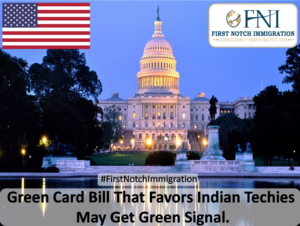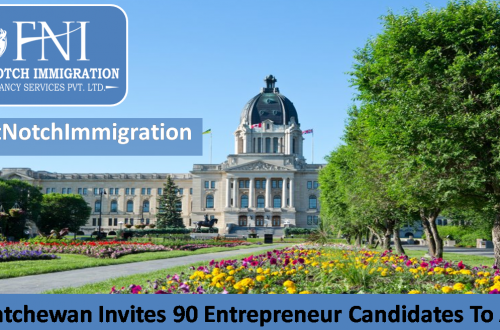Ending country cap in Green Cards may allow India, China to dominate path to US citizenship.
US lawmakers took another shot at removing the per-country limit on green cards, a cap that disadvantages immigrants from populous countries such as India and China while giving people from other parts of the world an easier shot at US permanent residency. The bill will eliminate the per-country limit on employment-based permanent residency, currently set at seven per cent. Because current law limits employment-based green cards to 140,000 annually, no more than 9,800 people from any one country can get permanent US residency.
It is backed by US tech companies such as Microsoft and IBM, for whom it will become easier to hire Indian tech workers.According to USCIS, as of April 2018, over 3,00,000 Indian professionals are in the green card backlog in the technology space alone.
In a bipartisan move that has backing from majority lawmakers from each parties and subsequently has a great opportunity to develop into law, Representatives Zoe Lofgren (Democrat from California and Ken Buck (Republican from Iowa) moved a new version of the Fairness for High-Skilled Immigrants Act of 2019 (H.R. 1044 – in the past referred to as H.R. 392). The legislation is sponsored in the Senate by Kamala Harris (Democrat from California and Mike Lee (Republican from Utah).
Similar to previous version of the invoice that was once scuppered by tough lawmakers despite having majority fortify in Congress, the invoice will do away with the per-country limit on employment-based everlasting residency, currently set at seven in line with cent. Because current law limits employment-based inexperienced cards to 140,000 annually, not more than 9,800 folks from any one country can get everlasting US residency.
This effectively way Chinese and Indians, who form bulk of the high-skilled immigrants to the United States, get most effective 9,800 inexperienced cards annually, leading to a huge backlog of applicants that some surveys say will take decades to clear. In distinction, aspiring immigrants from much less populous international locations, say Sri Lanka, Ethiopia, or Iran to take random examples, have a better likelihood of securing a inexperienced card as a result of they’re fewer in number in the United States.
In truth, the proposed invoice has already brought about consternation amongst prospective immigrants from other international locations who see it as tilted in favour of India, which sends the easiest number of expert guest staff to the United States on H-1B and L visas. “We continue to have strong concerns about the impacts of this proposal and are committed to ensuring that the visa and green card process is equitable for Iranians and will advocate accordingly,” the National Iranian-American Council (NIAC) which lobbied towards the invoice when it was once first introduced in 2018, mentioned on Thursday, arguing that “given the combination of the Muslim Ban and the community’s reliance on single-entry visas, (the bill) would have a hugely negative impact on Iranian nationals in the United States.”
Organisations such because the American Hospitals Association also opposed the invoice, as a result of it will decelerate everlasting residency for immigrants from international locations equivalent to Philippines and Sri Lanka, which ship a large number of nurses to the United States, and would favour expert guest staff from India, who dominate the technology house. Because nurses are not eligible for H-1B visas, the affiliation feels that the well being care sector might be shortchanged. The invoice is sponsored by US tech firms equivalent to Microsoft and IBM, for whom it’s going to develop into easier to rent Indian tech staff, particularly the ones graduating from US universities, some of whom go back to India somewhat than jump through the H-1B hoops resulting in lengthy waits in a backed-up inexperienced card regime.
“We all know that our immigration system is severely broken, and it has been broken for decades,” mentioned Congresswoman Zoe Lofgren. “At the heart of this broken system are the outdated employment- and family-based immigration systems, which suffer under decades-long backlogs. In combination with the per country limits, these backlogs keep nuclear families apart for decades, while preventing US employers from accessing and retaining the employees they need to stay competitive”.
News Source: TOI
To know more, contact First Notch Immigration Today!
📱Call Us: +91-9319574401
📧Mail us your query: [email protected]
🌐Visit our website: http://firstnotchimmigration.com/
🏢Visit our office for Counselling: 1414, 14th Floor, Hemkunt Chamber-89, Nehru Place, New Delhi-110019

